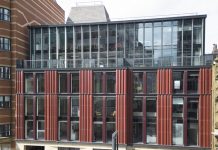It’s been a strange year, but for once, everyone I know has a heighted awareness that the environment has taken a step forward on all our agendas, writes David Little, a Partner in Bishop & Sewell’s Corporate and Commercial Team.
Written at the request of the Chancellor of the Exchequer, The Dasgupta Review: The Economics of Biodiversity? Is Professor Sir Partha Dasgupta’s masterful analysis of how an economic value could be ascribed to Nature.
Well, here’s what a well known naturalist says in the Review’s Preface: “Consider the following facts. Today, we ourselves, together with the livestock we rear for food, constitute 96% of the mass of all mammals on the planet. Only 4% is everything else – from elephants to badgers, from moose to monkeys. And 70% of all birds alive at this moment are poultry – mostly chickens for us to eat. We are destroying biodiversity, the very characteristic that until recently enabled the natural world to flourish so abundantly. If we continue this damage, whole ecosystems will collapse. That is now a real risk.
“We are now so mechanically ingenious that we are able to destroy a rainforest, the most species-rich ecosystem that has ever existed, and replace it with plantations of a single species in order to feed burgeoning human populations on the other side of the world. No single species in the whole history of life has ever been so successful or so dominant.
“Now we are plundering every corner of the world, apparently neither knowing or caring what the consequences might be. Each nation is doing so within its own territories. Those with lands bordering the sea fish not only in their offshore waters but in parts of the ocean so far from land that no single nation can claim them. So now we are stripping every part of both the land and the sea in order to feed our ever-increasing numbers.
“Nonetheless, in spite of these assaults, the biodiversity of the world is still immense. And therein lies the strength that has enabled much of its wildlife to survive until now. Economists understand the wisdom of spreading their investments across a wide range of activities. It enables them to withstand disasters that may strike any one particular asset. The same is true in the natural world. If conditions change, either climatically or as a consequence of a new development in the never-ending competition between species, the ecosystem as a whole is able to maintain its vigour.”
That, of course, was Sir David Attenborough.
Sir Partha Dasgupta himself starts and ends his remarkable roadmap out of this potential Armageddon thus: “In the chapters that follow, the natural world is studied in relation to the many other assets we hold in our portfolios, such as the vehicles we use for transport, the homes in which we live, and the machines and equipment that furnish our offices and factories. But like education and health, Nature is more than a mere economic good. Nature nurtures and nourishes us, so we will think of assets as durable entities that not only have use value, but may also have intrinsic worth. Once we make that extension, the economics of biodiversity becomes a study in portfolio management. Which is why I call the concerned citizen the ‘citizen investor’.
“Nature has features that differ subtly from produced capital goods. The financier may be moving assets around in his portfolio, but that is only a figure of speech. His portfolio represents factories and ports, plantations and agricultural land, and mines and oil fields. Reasonably, he takes them to be immobile. In contrast, Nature is in large measure mobile. Insects and birds fly, fish swim, the wind blows, rivers flow, the oceans circulate, and even earthworms travel.
“Economists have long realised that Nature’s mobility is one reason the citizen investor will not take the market prices of natural capital to represent their social worth even when markets for them exist. We study the wedge between the prices we pay for Nature’s goods and services and their social values (their social values are called ‘accounting prices’) in terms of what economists call ‘externalities’.
“Over the years, a rich and extensive literature has identified the measures that can be deployed (the forces of the law and social norms) for closing that wedge. The presence of the wedge is why the citizen investor will insist that companies disclose activities along their entire supply chain. Disclosure serves to substitute for imperfect market prices. But in addition to mobility, Nature has two properties that make the economics of biodiversity markedly different from the economics that informs our intuitions about the character of produced capital. Many of the processes that shape our natural world are silent and invisible.
“The soils are a seat of a bewildering number of processes with all three attributes. Taken together the attributes are the reason it is not possible to trace very many of the harms inflicted on Nature (and by extension, on humanity too) to those who are responsible. Just who is responsible for a particular harm is often neither observable nor verifiable. No social mechanism can meet this problem in its entirety, meaning that no institution can be devised to enforce socially responsible conduct.”
If you haven’t the energy to read all 610 pages, Gov.UK has helpfully provided a ten page synopsis here, of the main headlines.
If we haven’t the energy to save ourselves, who will?
David Little is a Partner in Bishop and Sewell’s Corporate & Commercial team. Should you require any further advice or assistance, please contact him on +44 (0)20 7079 4143 or email: [email protected]
About Bishop & Sewell LLP
Bishop & Sewell is a long-established, full service Central London law firm – with an international reach – specialising in Personal, Property and Commercial legal matters. To learn more, visit www.bishopandsewell.co.uk






















